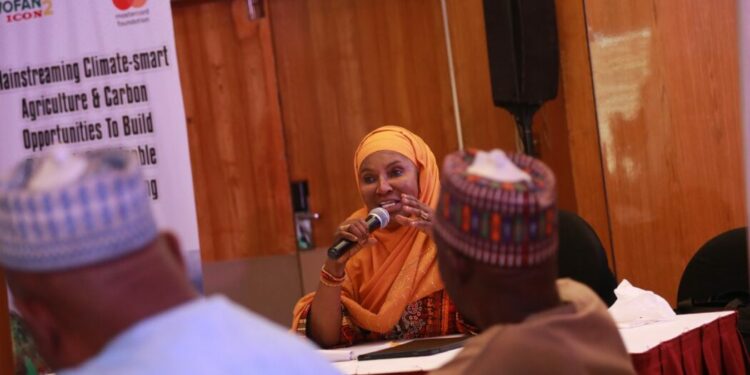The Women Farmers Advancement Network (WOFAN) has called for stronger collaboration, policy reforms, and public awareness to integrate climate-smart agriculture and carbon credit opportunities into Nigeria’s smallholder farming systems.
Speaking at an event themed “Mainstreaming Climate-Smart Agriculture and Carbon Opportunities to Build Resilient Sustainable Smallholder Farming in Nigeria”, WOFAN Executive Director Hajia Salamatu Garba stressed the urgent need for coordinated action among stakeholders to mitigate climate change while unlocking economic incentives for farmers.
Garba noted that many rural communities are unaware that climate-friendly practices can earn them bonuses or carbon credits.
“We need to create awareness, train people to understand what carbon credits are, review existing climate change policies, and partner with national and international climate bodies,” she said.
“At present, everyone is working in isolation. We must consolidate efforts, assign clear roles, and leverage each organisation’s strengths, “she noted.
She revealed that the initiative follows her participation in an awareness programme in France, where representatives from 15–18 countries pledged to develop country-specific action plans.
For Nigeria, WOFAN plans to engage partners, policymakers, farmer networks, and research institutions to identify challenges, develop sustainable business models, and present practical policy recommendations to government.
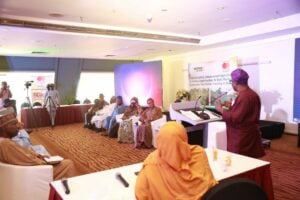
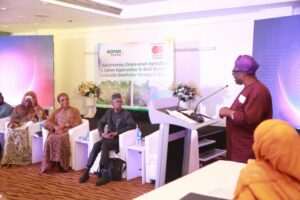
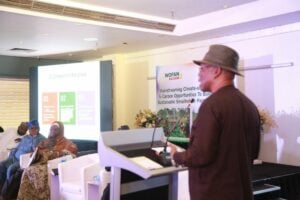
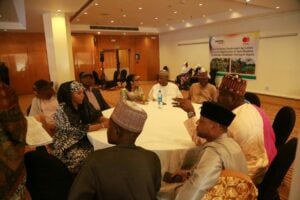
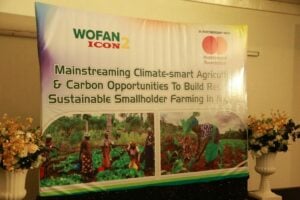
Chairman of the Technical Board for WOFAN’s climate-smart agriculture and carbon market projects, Professor Miko, explained that climate change impacts such as erratic rainfall, heatwaves, biodiversity loss, and soil degradation demand urgent adaptation measures.
He emphasised that climate-smart agriculture focuses on sustaining productivity, reducing greenhouse gas emissions, and sequestering carbon in soils.
“The carbon market rewards farmers for adopting practices that reduce emissions and store carbon,” Miko said. “These are not new technologies. Adding organic matter, proper water management, and targeted pest control have been tested over time. What’s needed is selecting the right solution for each challenge, whether it’s drought, flooding, pests, or heat stress.”
Miko added that lessons from the France training, “Green Gold: Climate Smart Agriculture, Carbon Markets and Sustainable Business Strategies”—highlighted the potential to turn climate challenges into income-generating opportunities. He stressed the need for government involvement, resources, and farmer education to ensure widespread adoption.
Both Garba and Miko underscored that smallholder farmers, who produce most of Nigeria’s food, must be at the centre of the climate-smart transition, with policies tailored to be community-friendly, gender-sensitive, and inclusive of people living with disabilities.
Other experts harped on exploring working relationship with legislative bodies, MDAs, networks and partners to collaborate and identify strategies and innovation on building capacity of smallholder farmers and educate them on the economic potentials of carbon trading for east adoption.


